Education is a cultural phenomenon and an important part of the cultural system. Different regions and different cultures create different forms of education. Naturally, education between Chinese and western countries will inevitably show a series of differences.
Speaking of the Chinese education system, we are talking about its thousand-year of history, culture, and tradition, while the western countries were developed from quite another history, culture, and tradition which originated from the creed of Christianity, the wisdom of the great men of ancient Greek.
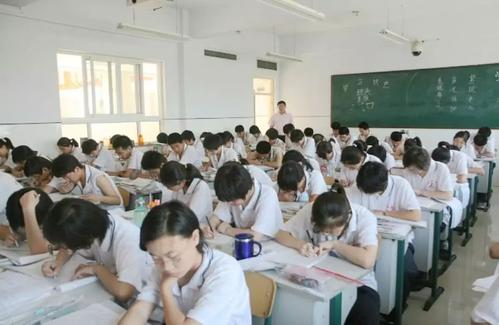
Chinese and western educational traditions are deeply rooted in different historical and cultural soils. With thousands of years of civilization, the Chinese education tradition has a unique position in the world; the western education tradition has also crossed the limits of language and national boundaries. Since modern times, its concept has significantly affected many nations and countries all over the world.
With the development of human society, people are paying more and more attention to education. Because this not only represents the degree of a country's advanced civilization but also determines the development of the country.
Nowadays, both the Chinese and western education systems are experiencing a period of rapid change, and educators are actively exploring innovative education modes to meet the upcoming challenges. The competition in today's world focus on the competition of talents. The key point of cultivating talents depends on education. The success or failure of education is related to the future and destiny of a country.
There is no point in comparing which education system is better, because the comparison is only a way to deepen the understanding of them both, so we can absorb the essences and discarding the dregs, combine the best part. As there are a great many differences in education between China and the west, it is of great significance to explore the differences between Chinese and western education in realizing educational modernization and promoting social-economic development.
The following are five main educational differences:
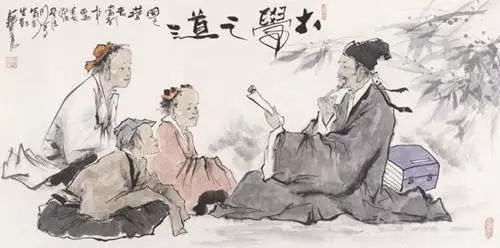
The divergence existed since ancient times. Chinese education emphasizes the construction of an ideal world through learning, which means everybody is considered as an important link of society. The students should use what they have learned to improve the society and creating a high-quality, developed society suitable for everybody. The traditional education in ancient China is rooted in cultural and moral norms. Education is not only to serve the society but also to teach students the truth through fables and moral teaching of written works. These characters have a history of thousands of years, mainly about the Confucian social order, filial piety, obedience to the superior in the social structure, etc. Students should understand the wisdom and contribute to society by learning these moral stories.
Western education emphasizes the exploration of the unknown and the pursuit of the truth through learning. Compared with China, the western tradition put more effort into the students themselves, expecting them to contribute to the public welfare as an independent individual with their knowledge and wisdom.
Western traditional education is also called a liberal education. Traditional liberal education mainly through the form of general education, allows students to learn reading, writing, speaking, listening, understanding and thinking, and other abilities, to train students' intelligence and morality.
Western research has a long history. It is divided into several subjects, focusing on the study of basic issues, the understanding of the differences and connections between various topics, and the understanding of ideas. At the same time, western research on history, literature, science, mathematics, and language leads them to the highest ideal of western philosophy: the search for truth and the accumulation of wisdom.
In conclusion, education in China is not about the individual, but for the collective interest. Chinese people study hard and learn hard, but they lack the courage and spirit to explore. In western countries, education does not be treated as a mean of cultivating high-quality people, education itself is the purpose of existence so that people can give full play to the vitality of life, to explore the truth, to achieve personal value.
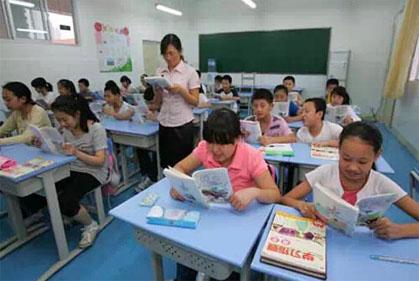
For a long time, China's teaching style has been based on traditional receptive education. The students sitting in the classroom studying with unified learning materials, synchronized schedules, and equal requirements. The knowledge of the book is the main content, and being used by the teachers to feed them directly to the students. Through the teachers' guidance, the students will listen and write down some notes of the crucial knowledge point.
The standard of evaluating classroom teaching is usually that the teacher speaks, methodically, without missing any key point, with a clear structure and clear logic. In particular, the key and difficult points should be explained in-depth and in detail. Before the end of a class, the teacher should sort out the content and make a summary to give students a clear, thorough impression. A class is to make students easily grasp the knowledge without any effort, and can digest it in class, without leaving students with any difficult problems. This kind of teaching is of good quality and high efficiency, because this kind of teaching is most conducive to students' quick and easy mastery of knowledge and conclusion, and also conducive to pass the examination. China's classroom teaching can be very rigid in external forms, which makes it too stiff, focus too much on the pursuit of the result, planning, unification, and standardization and lack of flexibility, randomness, adaptability, and sense of humor.

Relatively speaking, western classroom teaching style attaches great importance to highlighting the dominant position of students and encouraging students to learn and participate effectively: assess the facts, negotiate with each other, make decisions, and solve problems. In this free, safe, and relaxed atmosphere, every child has the opportunity to express their views freely, feelings, and experiences. Their ideas will be carefully listened to and they will accept active fed back. They can actively communicate, share ideas and experiences, and share their understanding of meaning so that they can learn to manage themselves. There is no coercion or restriction, but more encouragement, inspiration, and guidance. It provides more opportunities for the free development of children's mind as much as possible so that the growing people can explore their life path, their potential abilities, and develop their interests, do what they want to do according to their wishes, and increase continuously in the process of doing and learning a strong sense of social responsibility.
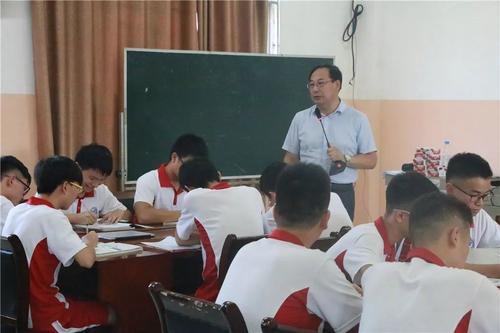
Influenced by the traditional teaching model, Chinese classroom teaching methods are monotonous and mechanical. Teachers only pay attention to the imparting of knowledge, emphasize vocabulary teaching and the foundation of knowledge, but ignored the practical application of language, which to some extent is divorced from the actual needs of students. Teachers require students to concentrate on listening, practicing, taking notes, and memorizing it after class. Students are silent while in the classroom and seldom take the initiative to speak and ask questions. In class, students seldom have the opportunity to express their views and dare not to express new views different from teachers. They are used to waiting for teachers to ask questions and give correct answers. Even if some students have some questions or confusion, they often have to go through some careful consideration before they ask. Because the fear of putting forward superficial questions will be ridiculed by other students. This fear of disgrace leads the students into a passive state.
Western teachers advocate using a variety of teaching methods according to the teaching content, encouraging students to participate actively, mobilizing students' enthusiasm and initiative in learning to use various teaching methods to meet the different needs and personality development of the students, to teach students by their aptitude. Therefore, western teachers advocate students to think independently and express their own opinions, rather than limited to the routine problems in textbooks. They encourage students to ask questions, put forward different opinions, and even argue with teachers. In the west, one of the criteria for evaluating a student's excellence is "to have their own opinions, like to think independently, be able to draw their conclusions and dare to put forward views different from those of teachers ".
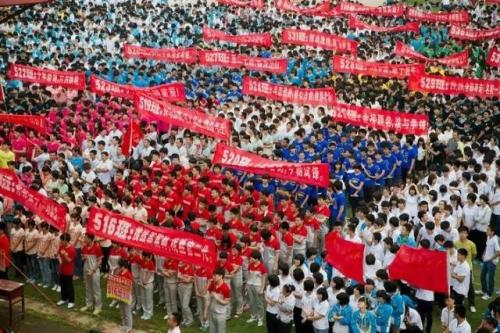
Educators and education are two basic factors in the process of educational activities. Because of the distrust attitude towards students in China's educational concept, teachers are required to give full play to their leading role because they insist that the students do not have the awareness of initiative learning. The Chinese old proverb “ Great masters train greater apprentices” or “ Lax teaching and the teacher is to blame” are all reflecting that Chinese education has put the focus of the whole educational activity on teachers.
In the western countries, on the contrary, education is defined as, guidance and enlightenment. The role that teachers play is merely a guide, but the main body of education is on the side of students. In other words, Chinese education is often understood as other dynamic social behavior, while western education is understood as an automatic behavior. Affected by this, Chinese students lack the initiative to learn, they got used to accepting, not good at thinking and doubting. Students in western countries like to ask questions, and teachers also encourage students to dare to question their authority. They are keen on debating and make their disordered knowledge system by eliminating the dross and fallacies in the debate, to make rapid progress.
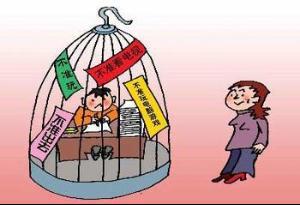
Influenced by the feudal social consciousness for a long time, Chinese parents think that their children belong to them, and their children are "ignorant" and "irresponsible". They have comprehensive responsibility for their children. Therefore, they require their children to be obedient, and the obedient children are "good children", which constrains their self-awareness and self-development. The parents in western countries generally believe that a child is an independent individual from birth, and has his own independent will and personality. They do not control or restrict children's behavior, and generally do not make choices for their children. Parents want their children to feel that they are their own masters, and even what they say to their children under any circumstances, parents should think carefully, respect and understand their children's wishes and psychology.
Most Chinese parents hold a negative attitude towards their children's exploration activities. They often stop their explorations as nonsense. The creative spark of children is often extinguished under the strict discipline of their parents.

Western parents encourage innovation, while Chinese parents tend to be content with imitation. They believe that children have the same independent research and hands-on ability as adults, and can create an environment and atmosphere conducive to the cultivation of children's creativity with a tolerant attitude. The western parents often hold a positive attitude towards children's explorative behaviors, encourage them to put forward different opinions in life, and actively explore their questions. Even if parents think that a certain behavior of their children does not have a positive effect, they will not interfere too much, but let the children gradually realize their problems and correct them in their exploration.
To learn those differences, we should start digging from multiple aspects and analyze them from its source that causing all these gaps.
Through the development of the early capitalist economy and the promotion of the two industrial revolutions, the West directly promoted the primitive accumulation of capital and had enough funds to support the development of education. At that time, China was in a period of political turmoil. The eastern colonies were everywhere, and there was no good peaceful environment for economic development. Therefore, education could not develop properly.
China is a direct transition from a feudal society to a socialist society, so some feudal ideas still have an impact on social life now. For example, the current examination system of examination-oriented education is similar to the ancient imperial examination system. After the founding of the People's Republic of China, China's education was influenced by the planned economic system and the higher education model of the Soviet Union. Therefore, the management system of education was highly centralized. Although this situation has been improved since the reform and opening up, the autonomy of colleges and universities is still limited in practice.
In the western countries, after a series of important historical events such as the Renaissance, the glorious revolution, and the industrial revolution, many countries have embarked on the road of capitalism. People attach great importance to the pursuit of freedom, democracy, human rights, and science and technology. Under the influence of this concept, western education pays attention to the cultivation of personality and encourages innovation and invention. At the same time, western education is established under the market economy system, and colleges and universities have great autonomy.
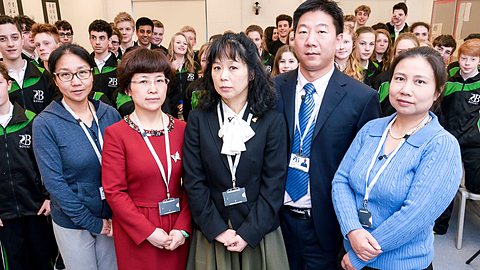
On August 4, 2015, BBC 2 broadcast the documentary "Are Our Children Strong Enough" in the evening. Before the broadcast of the documentary, the content disclosed by the media has ignited public opinion, and a debate about the cultural conflict between China and the West and the advantages or disadvantages of education methods has been launched in Britain.
The documentary tells the story of a four-week Chinese teaching experiment conducted by five Chinese teachers in a middle school in Hampshire, southern England. The characteristics of Chinese teaching are strict and long-lasting. Chinese students are always at the top of some well-known international examinations.
First, as part of the experiment, Chinese teachers took over a ninth-grade class of 50 students. These students wear uniforms for four weeks. They arrive at school at 7 a.m. every day for 12 hours, with two meal breaks. There is also a ceremony to raise the British flag once a week. And the learning in class is mainly taking notes. At the same time, also participate in group P.E exercises. Students are also responsible for cleaning the classroom.
As the experiment goes on, the students became impatient even rebel against the stress of long days and strict discipline. Their behavior became negligent, while the Chinese teachers struggling to continue their lessons.
Yet the result after four weeks was quite shocking: The average grades of the Chinese class were higher than the British class in every subject.
Education is a form of a cultural phenomenon. Different education reflects different social and cultural connotations. The fundamental problem of education is what type of people to cultivate and how to cultivate them. On this fundamental issue, different educational views have different educational objectives and teaching methods. Chinese education must be based on China's national conditions and reflect the social and cultural connotations of China. Chinese education must also be rooted in the cultural tradition of China. There are great differences between Chinese education and western education, and each has its advantages and disadvantages. We should seize the opportunity to promote the modernization of education and internationalize education. We should learn from each other to complement and develop together. In short, what we need is a modern education that combines localization with internationalization.